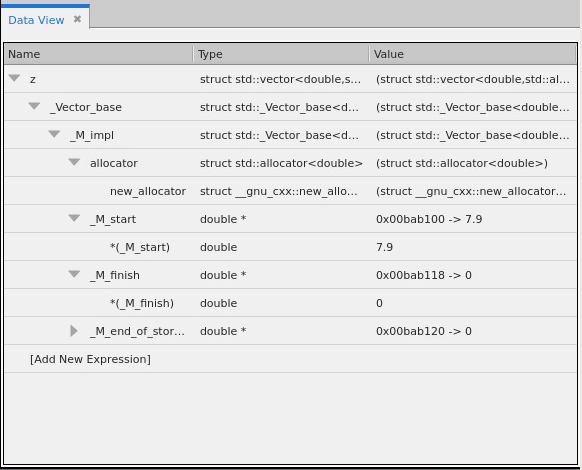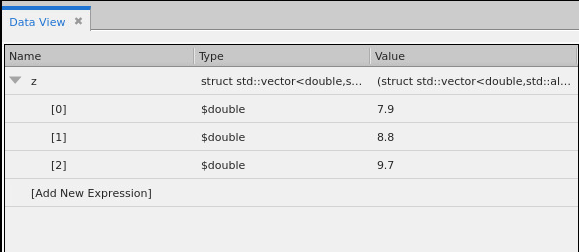Controlling STL Data Transformation
When a debugger displays a variable, it usually relies on the definitions of the data used by your compiler. TotalView’s Data View, however, automatically transforms your data in an aggregated list or array view that makes it easier to examine.
This is particularly important for C++ STL (Standard Template Library) types that use abstractions such as structures, classes, and data types, including lists, maps, and vectors.
By default, TotalView transforms STL types, including strings, vectors, lists, maps, multimaps, sets, and multisets. This behavior is part of the TotalView Type Transformation Facility (TTF) that provides tools for customizing how you view data.
Viewing untransformed data
If you do need to look at the untransformed data structures, use the CLI’s dset command to set the TV::ttf variable to false:
For example, here is how your compiler sees a vector compiled using the GNU C++ compiler (g++):
Figure 70, An Untransformed Vector

Most of the information is generated by the STL template and, in most cases, provides little value for analysis. In addition, the STL does not aggregate the information in a useful way.
TotalView solves this problem by transforming the data so that you can easily examine it. For example, here is the transformed vector, using TotalView’ default TTF settings:
Figure 71, A Transformed Vector

You can also create transformations for other STL containers.
General information on creating custom type transformations | |
Transforming C++ types | “Displaying C++ Types” in the Classic TotalView User Guide in the product distribution at <installdir>/<totalview_version>/doc/pdf or on the TotalView Documentation website, Displaying C++ Types. |





